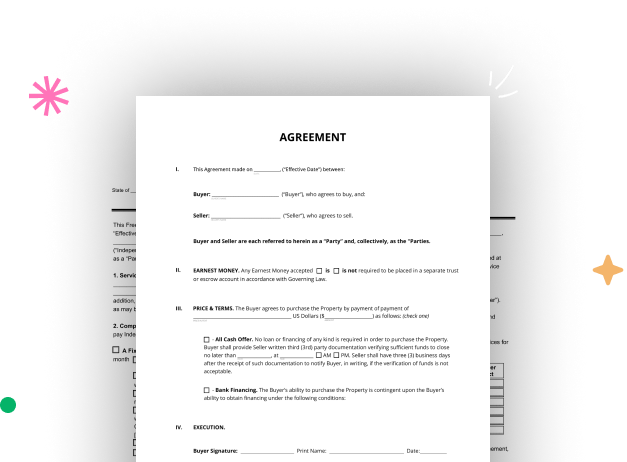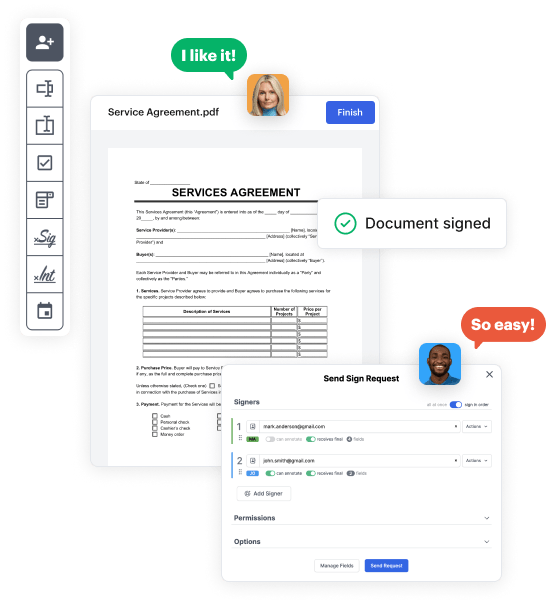

Begin by logging into your DocHub account. Explore the pro DocHub functionality at no cost for 30 days.
Once logged in, go to the DocHub dashboard. This is where you'll build your forms and handle your document workflow.
Click on New Document and select Create Blank Document to be redirected to the form builder.
Use the DocHub features to add and arrange form fields like text areas, signature boxes, images, and others to your form.
Include necessary text, such as questions or instructions, using the text field to lead the users in your document.
Adjust the properties of each field, such as making them required or arranging them according to the data you plan to collect. Designate recipients if applicable.
After you’ve managed to design the California Property Deed, make a final review of your form. Then, save the form within DocHub, export it to your preferred location, or share it via a link or email.